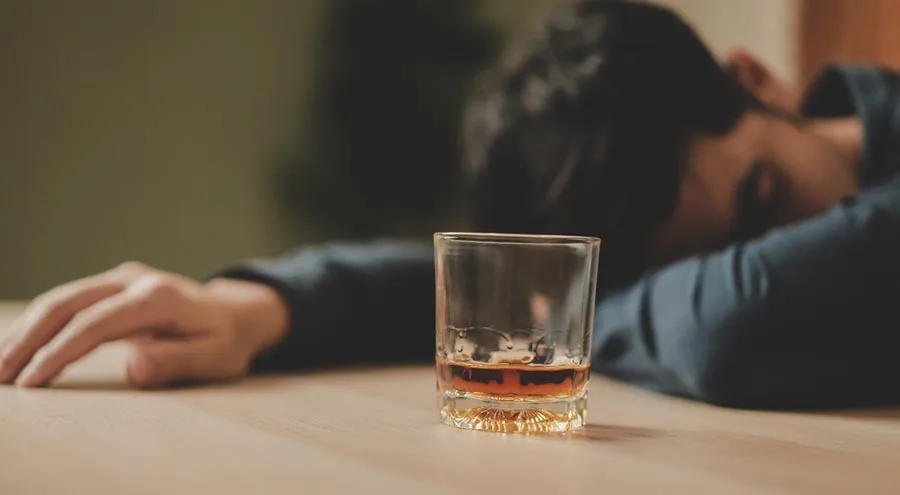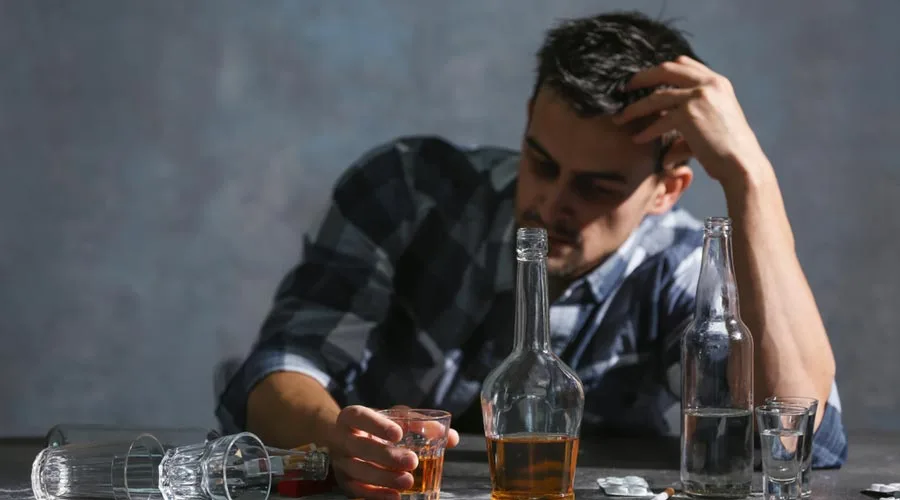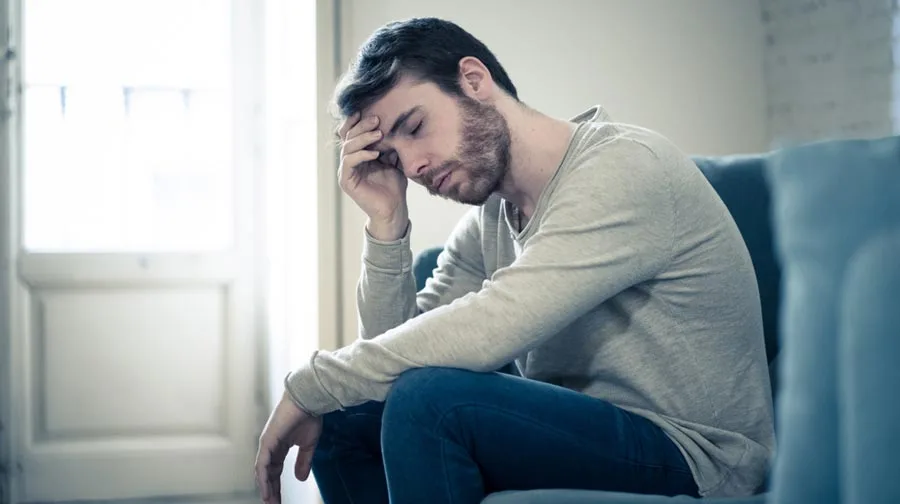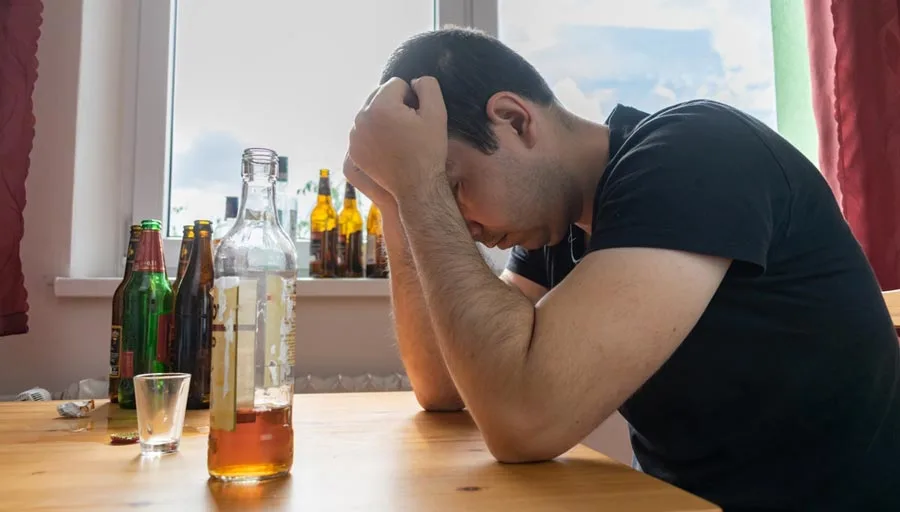Understanding Relapse and Getting Support at South Shores
The date is January 31, 2018. And I just got out of a rehab center for the fifth time. For me, this rehab stay was different than those in the past. After a miserable week of hot and cold sweats as part of my withdrawal symptoms and detoxing, I actually had a great time in treatment. I made some amazing friends that will always be in my life. I met a beautiful girl, in fact, I’ll call her my soulmate, and now I have a girlfriend (LOL).
I finally talked about and started processing my emotional struggles with grief, and trauma. I learned coping skills to help me with my anxiety and depression. I agreed to attend outpatient treatment programs and am back on my Wellbutrin. And now I’m back in the “real world,” ready to start my new life.
All of these things help me to feel well-qualified when it comes to addressing the burning question: why do addicts relapse when things are good?
Keep on reading, and I’ll share a little more of my own experiences and look at the reasons many of us with substance use histories have issues with relapse just when things seem to be going well. I’ll also touch briefly on how much of a difference attending South Shores Detox and Recovery made for me, and why it might be worth considering for you or your loved one as well!
Riding High on a Pink Cloud
Fast forward to one month later. I’ve started my new, sober life. I have a job I actually like. My family’s talking to me again and wants me to be a part of their lives again. They even gave me my house key back! I have a car again, after wrecking mine a few months before I went into a treatment program. My felony possession charge was dropped to a misdemeanor after I completed treatment.
No more probation, and no more jail. I have money in a bank account. I have a bank account! I’ve been going to AA and NA meetings every now and then. I’m beginning to find spirituality and I’ve started praying again, which I haven’t done since Catholic school. I’m going to the gym five days a week. My life could not be any more perfect. I’m floating on what they call the “pink cloud”.
Gaining a Real Appreciation for My New Life
I’ve decided I’m never going back to my old life now that I’ve found a new way to live. When I look in the mirror today, I hardly recognize the person staring back at me. Everything is perfect in my healthy life and I’m never going to use drugs or alcohol again. What could possibly go wrong?
Well, unfortunately, as many of us as addicts have found out – this is often when relapse occurs, just when things look to be ‘perfectly’ in place! When it comes to getting clean and sober, many things can go wrong very quickly, which can often lead to relapse, especially in early recovery.
In the final sections of this article, I’m going to break down why addicts often relapse, even when it appears that life is going great. We’ll also look at how you can get help to get back into treatment, and once again have a great life with the the support of South Shores Detox!
Addiction Recovery as a Process and Not a Destination
A saying that is very popular in the recovery community is, “Relapse is a part of the recovery journey”. For many of us, this rings true. However, it does not have to be that way. Recovery from our addictions is a process and if we do the things that are necessary to stay sober, relapse does not have to be a part of our story. We can’t use drugs and alcohol for years and years and then expect ourselves to be healed after 30 days of treatment. That’s where many people go wrong.
After a year of sobriety, they will think: “I can just have one” and they do. So now the next weekend comes along, and they think: “Last Friday I just had 1 beer and stopped, so maybe this weekend I can just drink Friday night”. This is the beginning of the trap, This is our disease trying to convince us we are “normal” again and can drink like “normal” people.
However, I can tell you from first-hand experience that is not the way it goes. The recovery process is something we have to work on every day if we want to remain sober. We have to learn to accept that we will never be ‘healed” but that we can seek to always be aw
What Causes People to Relapse?
So this can be a very tricky question to answer. What may cause a relapse for one person, may not be a problem for another. Overall though, I think most addicts would agree not going to meetings or working a program, isolating yourself away from others in recovery, and jumping too quickly from addiction treatment and back into the “real world” can very easily lead to relapse.
When we achieve recovery and things are going well, we often feel that we do not need to continue to do the things that we did to get sober and stay sober. Non-addicts can probably easily understand why we would relapse when our worlds are crumbling around us, but many addicts relapse even when things are going well.
The Invisible Forces That Non-Addicts Don’t Quite Understand
This can sometimes be difficult for the non-addict to understand. “Why would you get high or drunk when everything is going well in your life?” Understanding that addiction is a disease can be very difficult for the non-addict. As addicts, we really don’t need a reason, even something good can trigger a relapse.
So many of us addicts will look for any excuse to relapse. This may include: “I got fired from my job today, I gotta get high”. “I got a raise at my job today, I gotta get high”. “I got a new dog today, I have to get high today”. “My dog died today, I have to get high today. This list could go on and on. The truth is, as addicts, we don’t need a reason to get high.
Our brain will create reasons for us to get high, even when none exist, and this is where sober support and peers become essential. If no one is around to refute this sort of reasoning, it can begin to sound all but logical, at least in the mind of someone with a substance use disorder!
My 7 Warning Signs: Why do Addicts Relapse When Things are Good
There are a few things to look out for when it comes to relapse or drug abuse. Some addicts can hide these signs of addiction relapse better than others. We become experts at hiding our addictions that it can sometimes be tough for a non-addict to recognize.
These are not definite signs of someone using drugs or drinking again, but they can definitely be hints that they might be in the early stages of a full relapse process. And all of these are elements I have personally seen take sober people back ‘out’ into the active embrace of the chronic disease of addiction.
1) Changes in Behavior
You may have heard someone say: “The relapse happens before we pick up”. This may have been what they were referring to. Often before, or even after, we relapse there are slight changes in negative emotions or our behaviors. Sudden changes in mood, attitudes, or social activities can certainly be signs an addict may be using again.
Once I got sober, I, like most addicts, found a routine and schedule that I tried my best to stick to. When I relapse, my mood instantly gets worse, I have less patience for life, I tend to sneak away a lot more and I tend to hang out and do things less often with my friends. Isolation from family, friends, support groups, meetings, and/or our sponsors can often be signs that we are about to or may have already relapsed.
2) Using Alcohol or Drugs as a Reward
During active addiction, drugs and alcohol are the thing that gets us out of bed in the morning. It’s our reason for doing anything. We start to use drugs and alcohol as a way to reward ourselves for accomplishing everyday life things. We get off work and the first thing we want to do is reward ourselves with a drink or a drug.
We get a raise at work, and we think “We deserve to celebrate, let’s have a drink”. When anything good happens, we indulge. I mean why shouldn’t we, we deserve it! This very addictive behavior can be a very difficult habit to break. We need to find more positive rewards for our accomplishments.
It can also help to build on low self-esteem and create rewards that are centered around esteemable activities that are enjoyable and incentivizing. For me, it’s watching a movie I’ve been waiting for, or taking my girlfriend out on a date that we’ve both been anticipating. Not world-changing, but definitely helpful reminders when it has been a long day or week!
3) Mental Health Issues Leading to Drinking or Using
Many people seem to believe that drugs or alcohol are the problem. In actuality, drugs and alcohol become the solution to our problems. The real problem is us. Most addicts deal with mental health issues that pour gasoline on their addictions if left untreated. Depression and anxiety, as well as trauma, often make it difficult for the addict to stop using or drinking.
Continuing therapy upon leaving treatment can be a very good way to help us stay sober. Addicts need to continue to work on their mental health in order not to fall right back into the trap of substance use or addiction.
4) A Lack of Clear Motivation for Recovery
Setting goals can be very important to help the addict and alcoholic maintain their sobriety. Having something to push towards can be the motivation when we get tempted. A career, a relationship, and financial stability, all can be great examples of things to push us to stay sober when we get tempted. We also will sometimes glorify our drug use or drinking. That is why a common exercise you may have heard of is “playing the tape out”.
We need to look at everything that happens after we take that first drink or drug, not just focus on the good feeling of getting high. What follows that feeling? Arrests, intense cravings, family and financial problems. We need to do this to stop us from glorifying our substance abuse.
5) A Lack of Support and Not Reaching Out
Sometimes things are going so well, we start to think we don’t need our support system anymore. We haven’t had a drink or used a drug for years now, so why would we still need our sober support system? Maybe we stop eating healthily. Maybe we stop going to the gym.
We fall back into our old routines. This mental phase almost always can be a sign that a relapse may be right around the corner.
6) Neglecting Self Care
One common cause of relapse is neglecting self-care. We stop doing the things we did to take care of ourselves when we quit drinking. Things like stopping taking our meds (after all, we don’t need them anymore, we’re great now…) can easily lead to relapse.
Sometimes we may stop showering or brushing our teeth, not getting enough sleep, and maybe we no longer pray or meditate, but self-care is very important if we hope to stay sober.
7) Connecting With Using and Drinking Peers
Another common thing we can do that can very easily lead to our relapse is hanging out with old friends who still drink or use drugs. We’ve been sober now for over a year, so why not? Surely, we can resist temptation now. Just because my friends may be using drugs or drinking, doesn’t mean that I will.
There is a saying that if you hang out long enough in a barbershop, you’re bound to get a haircut. The same thing goes for hanging out at bars or around drugs.
Reach Out for Support at South Shores If You Have Relapsed
It is very important for addicts to have a relapse prevention plan in place in case of relapse. South Shores Detox can help you figure out that plan. Know that if you do relapse, it is not the end of the world. If you got sober once, you can do it again.
My own experiences with South Shores have helped me find lasting successes in sobriety, and they can help you or your loved one as well!
Just don’t be afraid to seize the momentum and reach out now if you or someone you love is struggling with relapse!






